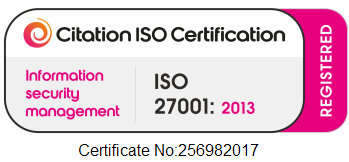How Recruitment Reporting Can Improve Your Talent Acquisition
As the business landscape becomes increasingly competitive, companies recognise that their greatest asset is their workforce. In order to stay ahead of the game, it’s essential to have a solid talent acquisition strategy in place that attracts, hires, and retains top talent.
However, simply implementing a recruitment process isn’t enough to guarantee success. Companies must also measure the effectiveness of their efforts through reporting. Recruitment reporting involves analysing and tracking data related to hiring metrics, such as time-to-hire, cost-per-hire, and candidate quality. By using reports to inform their talent acquisition strategy, companies can identify areas for improvement and optimise their recruitment processes to better align with their business goals.
In this blog, we’ll explore the benefits of using recruitment reporting and offer tips on how to use it to improve your talent acquisition strategy.
What Is Recruitment Reporting?
Recruitment reporting is vital for business development and provides recruiters, HR directors, HR managers and line managers with a mixture of quick and in-depth reports to accurately record the whole recruitment process.
You can report on many aspects of the recruitment process from the best sources of applications, and the speed of the process to highlight bottlenecks, to the diversity of your applicants. Often reports can be exported to Microsoft Excel and Adobe PDF documents for internal distribution and presentations.
Here are some examples of recruitment reports:
- Diversity
- Candidate Application Source
- Candidate Application by Progress
- Candidate Application by Progress by Branch
- Candidate Application by Location
- Active Jobs by User
- Average Time to Hire by Progress Option
- Average Responses
- Candidate Application Count by Date Range
- Candidate Growth by Year
- User Activity
- Candidate by Progress
- Job Tracker
Benefits Of Recruitment Reporting
One of the key benefits of reporting is that it helps you make data-driven decisions. Rather than relying on gut instincts or intuition, you can use data to evaluate the success of your recruitment efforts and make informed decisions about how to improve them. This can help you save time and money by focusing your efforts on the most effective strategies.
Recruitment reporting also allows you to identify trends and patterns in your hiring data. For example, you may notice that candidates sourced from one particular channel consistently outperform those sourced from others. This information can help you allocate your resources more effectively, targeting the channels that are most likely to yield high-quality candidates.
How To Improve Talent Acquisition Using Recruitment Reporting
Recruitment reporting can improve talent acquisition in several ways:
- Identify bottlenecks: Recruitment reporting can you identify bottlenecks in your hiring process, such as long time-to-hire or high candidate drop-off rates. By pinpointing these issues, you can take steps to streamline your hiring process, reduce delays, and improve candidate engagement.
- Measure ROI: Recruitment reporting can help you measure the return on investment (ROI) of your recruitment efforts. For example, you can track the cost-per-hire and compare it to the performance of new hires to determine whether your recruitment efforts are paying off. This information can help you allocate your resources more effectively and optimise your recruitment budget.
- Optimise sourcing: Recruitment reporting can help you optimise your sourcing strategy by tracking the performance of different sourcing channels, such as job boards, social media, and employee referrals. By analysing which channels are producing the most high-quality candidates, you can adjust your sourcing strategy to focus on the most effective channels.
- Improve candidate experience: Recruitment reporting can help you improve the candidate experience by tracking candidate feedback and identifying pain points in the hiring process. By addressing these pain points, you can improve the candidate experience, reduce candidate drop-off rates, and attract top talent.
Overall, recruitment reporting provides valuable insights into the recruitment process, enabling you to make data-driven decisions, optimise your recruitment efforts, and improve the quality of your hires. By leveraging recruitment reporting, you can build a more efficient and effective talent acquisition strategy that helps you attract and retain top talent.
Share this post and follow us on social media!
Like our blogs? Sign up for our newsletter




Comments are closed